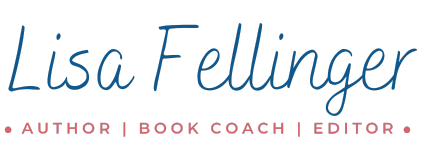
Welcome to the Blog

The Different Types of Editing
The term “editing” refers to a lot of different processes in writing, so it can understandably be confusing when writers hear that they need to hire an “editor.” Having a solid understanding of the different types of editing (and at what point in the process you’re most likely to need each type) can help you communicate your needs to professional editors and also help you research and vet an editor you may want to work with.

5 Steps to Start Writing a Novel
Writing a book is a dream for many, a goal on their bucket list that, sadly, too many people never accomplish. It can feel like an overwhelming project, and many people don’t even try because they simply don’t know where or how to begin. So, here I’ve broken down 5 steps you can take to create a writing life and start working towards achieving your dream of writing a book.

If Not Now, When?
I hear from a lot of people who dream of someday writing a book that “now just isn’t the right time.” Work is demanding, their kids are young, their parents need to be cared for, their husband just had surgery…the lists go on and on. And I get it, some seasons of our lives are busier and more chaotic than others. But the problem with putting off chasing after your dreams until the timing feels right is that the timing likely won’t ever feel exactly right. There will always be something that could take our attention away from writing.

The Cost of Publishing a Book
One of the biggest questions I hear working with indie authors is “How much does it cost to publish a book?” The second biggest question? “Do I really need [insert production cost here].” I get it. It’s rare that an indie author is someone supported by a sizeable trust fund with no financial obligations. More often, said author is jumping into publishing their book as a side gig. It’s been their dream to be an author, to publish their story, and they just want to get it out there.

The Power of Realistic Goals
If you’re anything like me, you pack your to do list with a plethora of goals every month, week, and day. No minute is wasted on a daily basis. In fact, you cram more onto your list than you know you’ll be able to accomplish figuring if you happen to finish all the “must do” items, then at least you have a handful of other items to choose from. There’s no real use in figuring out what’s possible to actually complete on any given day when there’s an endless number of things you need to accomplish. Right?

What’s Really Stopping You From Writing Your Novel?
Writing a novel is hard work. It takes a commitment to learning about the craft of writing, dedication to spending time getting words on the page, then enough motivation to sustain us through the process of what might feel like endless rounds of revision and editing. We’re often battling a lack of time as other obligations vie for our precious hours and keep us from crafting our characters. We often dream of having endless hours to spend on our writing, convinced that if we only had more time, we’d churn out story after story and be the successful, bestselling authors we know we’re meant to be.

Why Didn’t I See That?
A year-and-a-half ago, I’d hired my own developmental editor for my manuscript. I’d been working on this story for several years by this point and had worked on it in workshops and solicited critiques and feedback from fellow writers. But there is such a thing as too much feedback when it comes to our writing, and all the feedback and input I’d received left me feeling confused about the direction I needed to take to really make this story work.

4 Tips for Finding Time to Write When Life is Busy
I often talk about how the key to being successful as a writer is finding a routine that works for you and then sticking to it. (If you haven’t already established a good writing routine, check out by blog post 5 Easy Steps to Start Your Writing Routine for some ideas to get started). But what about when life is in a busy season and maintaining our usual routine isn’t possible?

4 Steps for a Successful Preptober
Happy October, writers! November is on the horizon, along with NaNoWriMo. If you’re planning to participate this year (or even if you’re undecided), I have some tips to help you prep to set yourself up for success.

Why Too Much Feedback Can Be Harmful
Excellent advice for any writer is to get feedback on your writing. No matter what stage you’re at, how advanced you are, or how naturally talented, gaining feedback on your writing is a great way to learn and improve and to catch issues with your writing that you’re simply too close to the story to see. But there hits a point when you may have too much feedback for it to actually be beneficial.

Why Taking a Break Will Make You More Productive
Our world is very “hustle” oriented nowadays. We’re constantly bombarded with images and updates of the progress those around us are making, being offered advice on how we can be more productive, and given subtle and not-so-subtle hints that down time is for the lazy. But hustling all day every day will eventually end only one way: burnout.

Does Writing Need to be Useful to be Worthwhile?
I had a conversation with a friend recently about hobbies. She said she needs a new hobby, but the only one she could come up with wasn’t “useful.” This got me thinking – does everything we do have to be explicitly useful in order to be worthwhile? If our writing doesn’t feel particularly useful in any given moment, does that mean we shouldn’t do it?

When and Why You Need a Developmental Edit
The term “edit” and “editor” get thrown around a lot in the writing world, which can easily become confusing as these terms can apply to a broad range of things. There are copy editors, acquisitions editors, content editors, developmental editors…the list goes on. So what exactly is developmental editing and where does it fit into the grand scheme of completing a novel?

5 Tips to Succeed at NaNoWriMo
There’s a lot of chatter surrounding the month-long event and whether it’s beneficial or not for writers to participate. My personal view is there’s no right or wrong answer to this. There are certainly pros and cons to NaNoWriMo, but whether or not it will be beneficial depends on what your writing goals are and how you work best.

It’s Back to Writing Season
Okay, I know it’s not officially fall yet. But to me, the day after Labor Day always signifies the beginning of fall. I think we’re conditioned from elementary school to view Labor Day as a transition day. As school-aged kids, it’s the last day of our summer freedom. It’s the last day we can sleep in late, not worry about homework, and spend the day doing whatever we please.

Finding the Courage to Share Your Writing
I remember writing my first “novel.” I had notebooks full of scenes, in no particular order, that I carried with me all day at school and wrote in every opportunity I had. Those notebooks held snippets of my most creative thoughts, were my touchstone to keep me sane throughout the day, and gave me an escape where I could make up any world I wanted. And if anyone ever read them, I’d have been mortified.

5 Steps to Protect Your Writing Time
You’ve done some trial and error and figured out when your best time for writing is, you’ve planned out a writing schedule and written these times into your planner. So, now what? As with anything in life, having a writing schedule will only serve us well if we stick to it. And, also as with anything else, sometimes that can be a challenge.

5 Easy Steps to Start Your Writing Routine
One of the best pieces of advice I can offer for being more productive in your writing life is to set up a writing routine. For years, I wrote when I felt like it, falling into the trap of believing I needed inspiration to strike before I could write a single word. And guess what? For years, I hardly wrote anything.

I Am a Writer: Owning the Title
We’ve all been there. Someone asks us what we do, and we panic. We have a day job, but our heart is really invested in what we do AFTER the hours of nine to five. Someone asks how our writing is going, and we say “Oh, you know,” without giving any concrete information. We refer to ourselves as an “aspiring writer” or say we “write for fun.”
